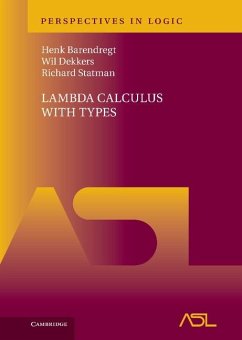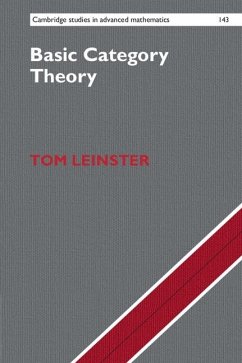
Aggregation Functions (eBook, ePUB)
Versandkostenfrei!
Sofort per Download lieferbar
77,95 €
inkl. MwSt.
Weitere Ausgaben:

PAYBACK Punkte
39 °P sammeln!
Aggregation is the process of combining several numerical values into a single representative value, and an aggregation function performs this operation. These functions arise wherever aggregating information is important: applied and pure mathematics (probability, statistics, decision theory, functional equations), operations research, computer science, and many applied fields (economics and finance, pattern recognition and image processing, data fusion, etc.). This is a comprehensive, rigorous and self-contained exposition of aggregation functions. Classes of aggregation functions covered in...
Aggregation is the process of combining several numerical values into a single representative value, and an aggregation function performs this operation. These functions arise wherever aggregating information is important: applied and pure mathematics (probability, statistics, decision theory, functional equations), operations research, computer science, and many applied fields (economics and finance, pattern recognition and image processing, data fusion, etc.). This is a comprehensive, rigorous and self-contained exposition of aggregation functions. Classes of aggregation functions covered include triangular norms and conorms, copulas, means and averages, and those based on nonadditive integrals. The properties of each method, as well as their interpretation and analysis, are studied in depth, together with construction methods and practical identification methods. Special attention is given to the nature of scales on which values to be aggregated are defined (ordinal, interval, ratio, bipolar). It is an ideal introduction for graduate students and a unique resource for researchers.
Dieser Download kann aus rechtlichen Gründen nur mit Rechnungsadresse in A, B, BG, CY, CZ, D, DK, EW, E, FIN, F, GR, HR, H, IRL, I, LT, L, LR, M, NL, PL, P, R, S, SLO, SK ausgeliefert werden.













